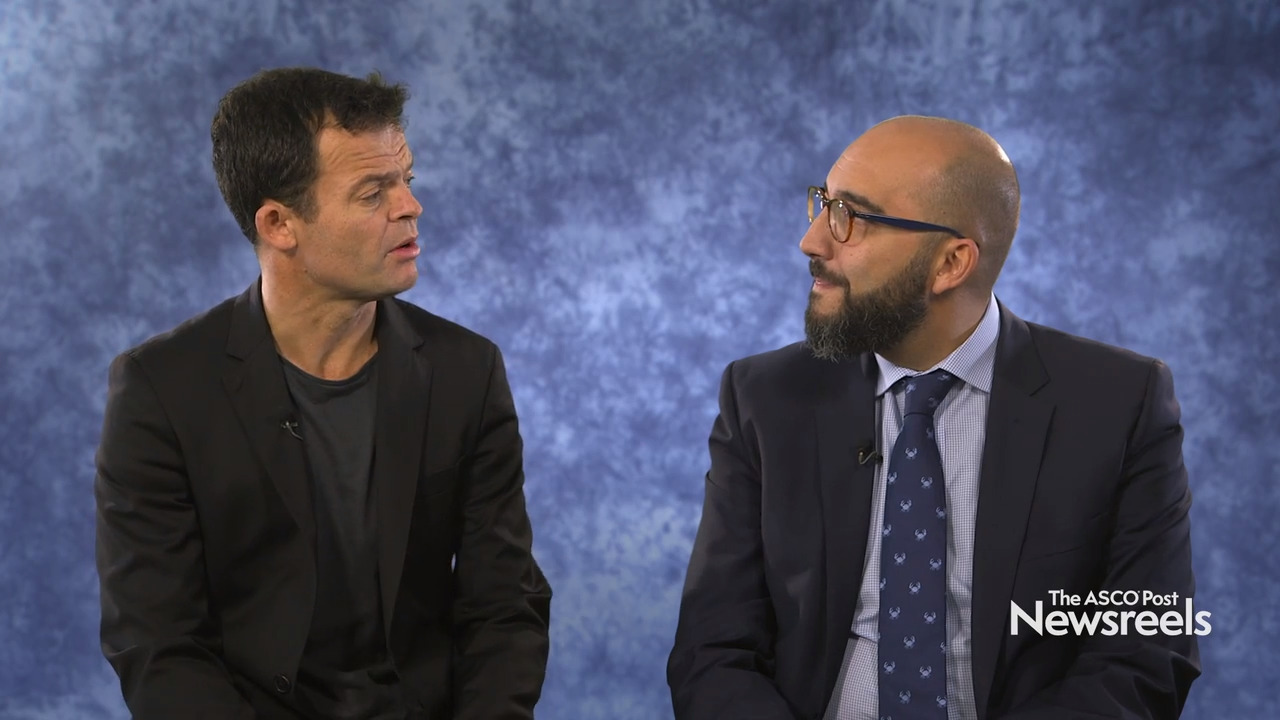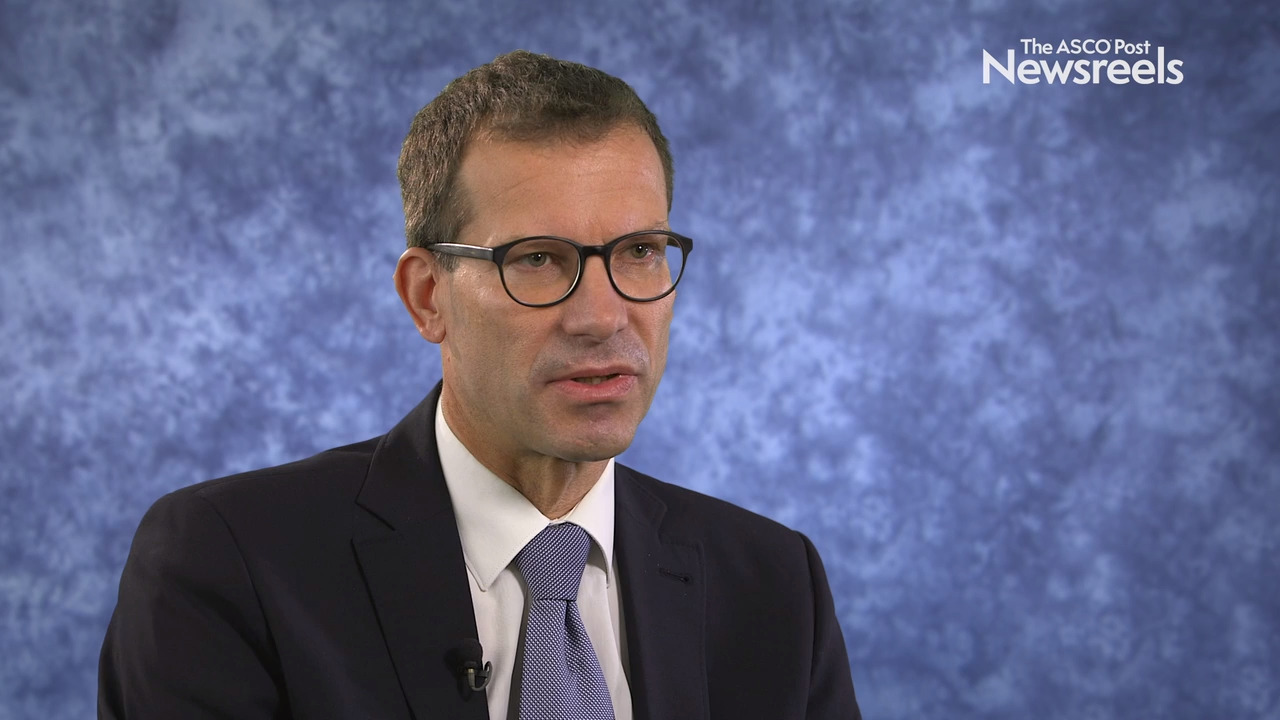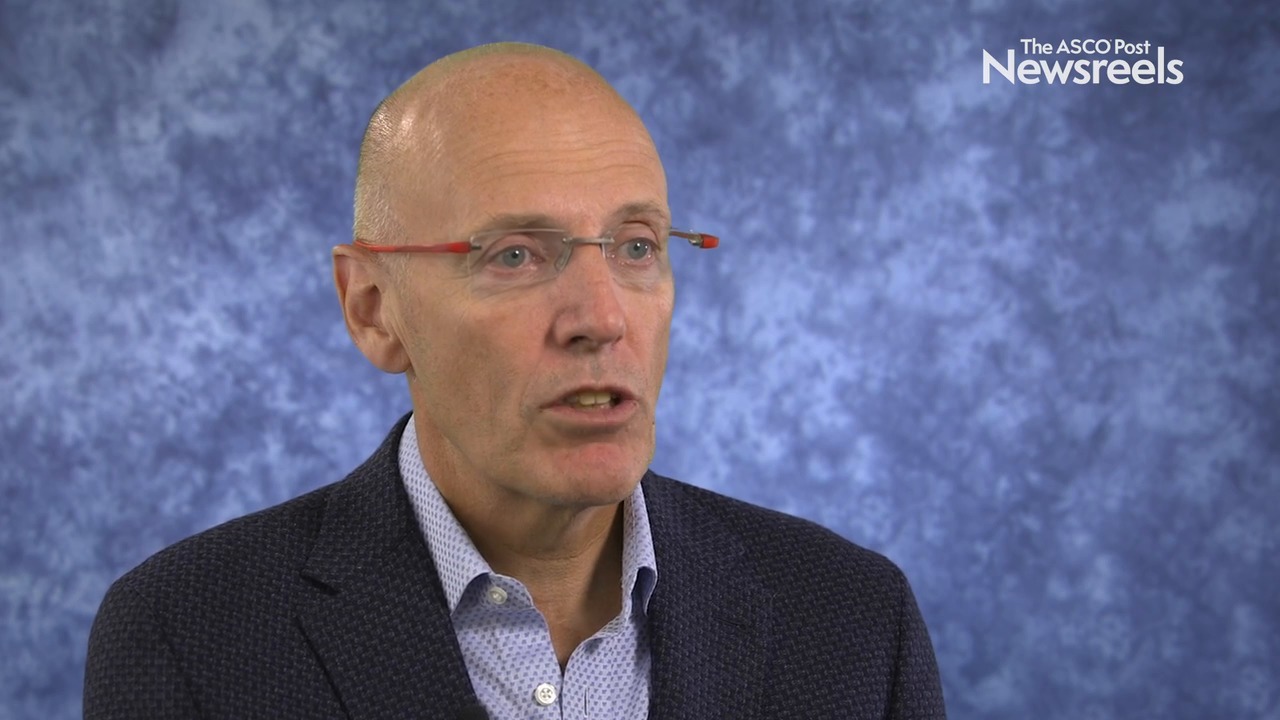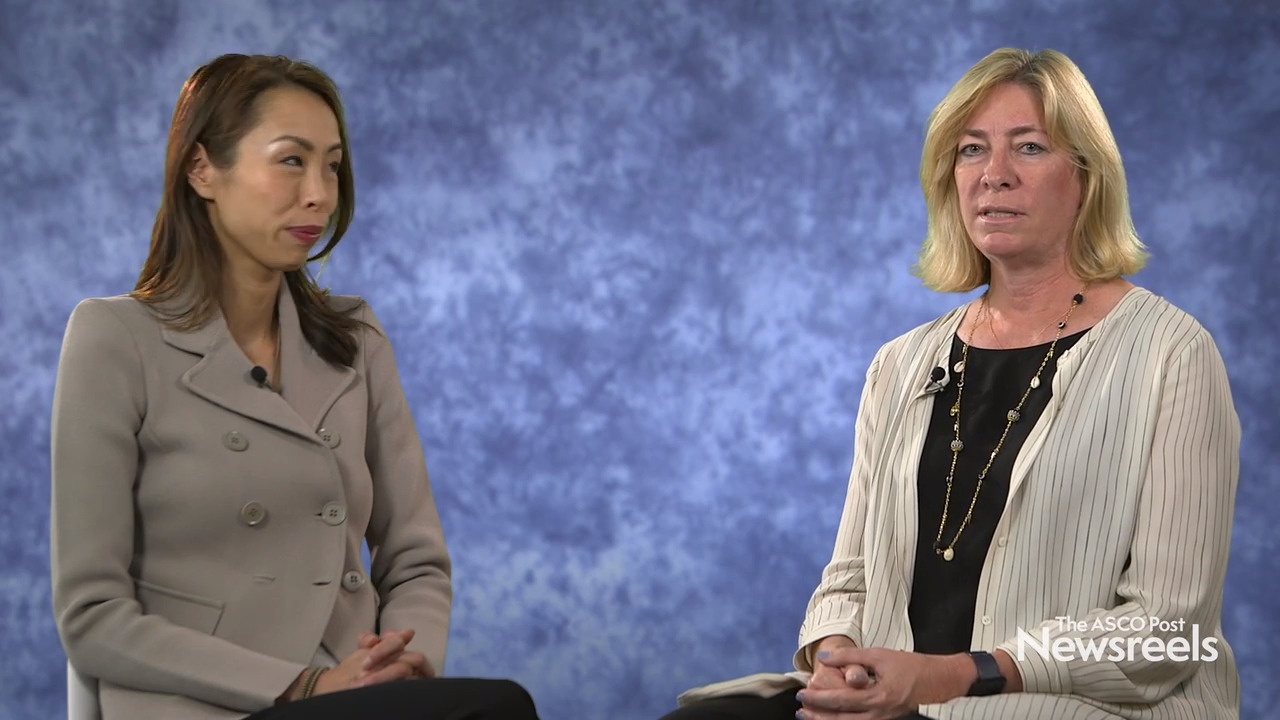Aleix Prat, MD, PhD, on a HER2-Positive Breast Cancer Biomarker: Results From the PAM50 Trial
ESMO 2019 Congress
Aleix Prat, MD, PhD, of Hospital Clinic de Barcelona, discusses the findings of a meta-analysis showing that the HER2-E subtype may predict pathologic complete response beyond hormone receptor status in HER2-positive early breast cancer (Abstract 248P).
Thomas Powles, MD, PhD, of Queen Mary University of London, and Enrique Grande, MD, PhD, of MD Anderson Cancer Center, Madrid, discuss findings of the phase III IMvigor130 trial on the efficacy and safety of atezolizumab as monotherapy or combined with platinum-based chemotherapy vs placebo plus platinum-based chemotherapy in previously untreated locally advanced or metastatic urothelial carcinoma (Abstract LBA14).
Volker Kunzmann, MD, of the University of Würzburg/Comprehensive Cancer Center Mainfranken, discusses the final results of a phase II multicenter trial on the conversion rate in locally advanced pancreatic cancer after nab-paclitaxel/gemcitabine- or FOLFIRINOX-based induction chemotherapy (Abstract 671O).
The ASCO Post Staff
Nicholas D. James, PhD, MBBS, of University Hospitals Birmingham NHS Trust, discusses the efficacy of prostate radiotherapy plus androgen-deprivation therapy with or without docetaxel in patients with prostate cancer with only lymph node metastases or less than four bone metastases (Abstract 844O).
Sherene Loi, MD, PhD, of Peter MacCallum Cancer Centre at the University of Melbourne, and Leisha A. Emens, MD, PhD, of UPMC Hillman Cancer Center, discuss overall survival in this phase II study of atezolizumab/trastuzumab emtansine (T-DM1) vs placebo/T-DM1 in previously treated HER2-positive advanced breast cancer (Abstract 305O).
Tim Meyer, PhD, of the University College London, and Lorenza Rimassa, MD, of Humanitas Research Hospital, Milan, discuss their phase III findings on prognostic and predictive factors of cabozantinib vs placebo in previously treated liver cancer, and outcomes based on clinical characteristics and plasma biomarkers in the advanced setting (Abstracts 749P & 678PD).





